
Hong Kong’s High Court has sentenced 45 pro-democracy activists to jail terms of up to 10 years in a landmark national security trial seen as a stark demonstration of a China-led crackdown on dissent.
A total of 47 pro-democracy activists were arrested and charged in 2021 with conspiracy to commit subversion under a Beijing-imposed national security law, which carries sentences of up to life in prison. The charges stemmed from an unofficial primary election in July 2020, where the activists aimed to pick the best candidates for an upcoming legislative election.
The activists, commonly known as “Hong Kong 47”, were accused of plotting to paralyse the government by engaging in potentially disruptive acts. Benny Tai, a legal scholar who was regarded as a key figure in the plan, received the longest sentence of 10 years.
After a 118-day trial, 14 of the democrats were found guilty in May, including Australian citizen Gordon Ng and activists Owen Chow and Gwyneth Ho, while two were acquitted.
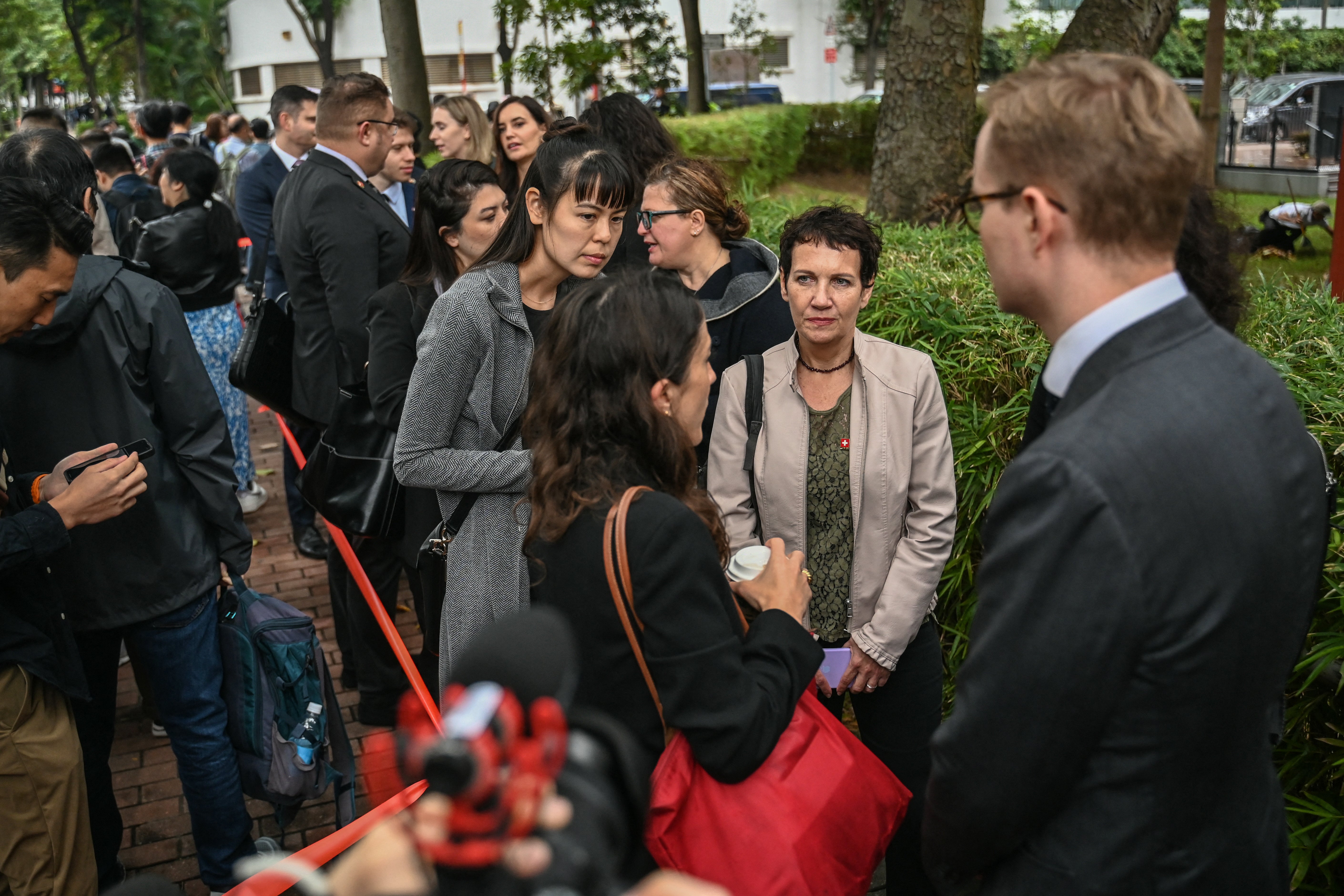
The other 31 pleaded guilty and all 45 were given sentences ranging from four to 10 years on Tuesday, including prominent activist Joshua Wong, who was handed a term of four years and two months.
Exiled activist Nathan Law, one of a number of pro-democracy activists who has had a HK$1m (£101,400) bounty placed on his head by Hong Kong police, told The Independent: “The sentencing is outrageous... The activists were merely doing things every party in democratic countries do, which was organising to run for a legislative election.
“Joshua and I are good friends and we have worked together for many years. He is a brave person and will endure... For activist overseas, especially those who are wanted, it means there is still a long way to go before they can go home,” he added.
“Our true crime for Beijing is that we were not content with playing along in manipulated elections,” Ms Ho, who was sentenced to seven years imprisonment, wrote in a Facebook post. “We dared to confront the regime with the question: will democracy ever be possible within such a structure? The answer was a complete crackdown on all fronts of society.”
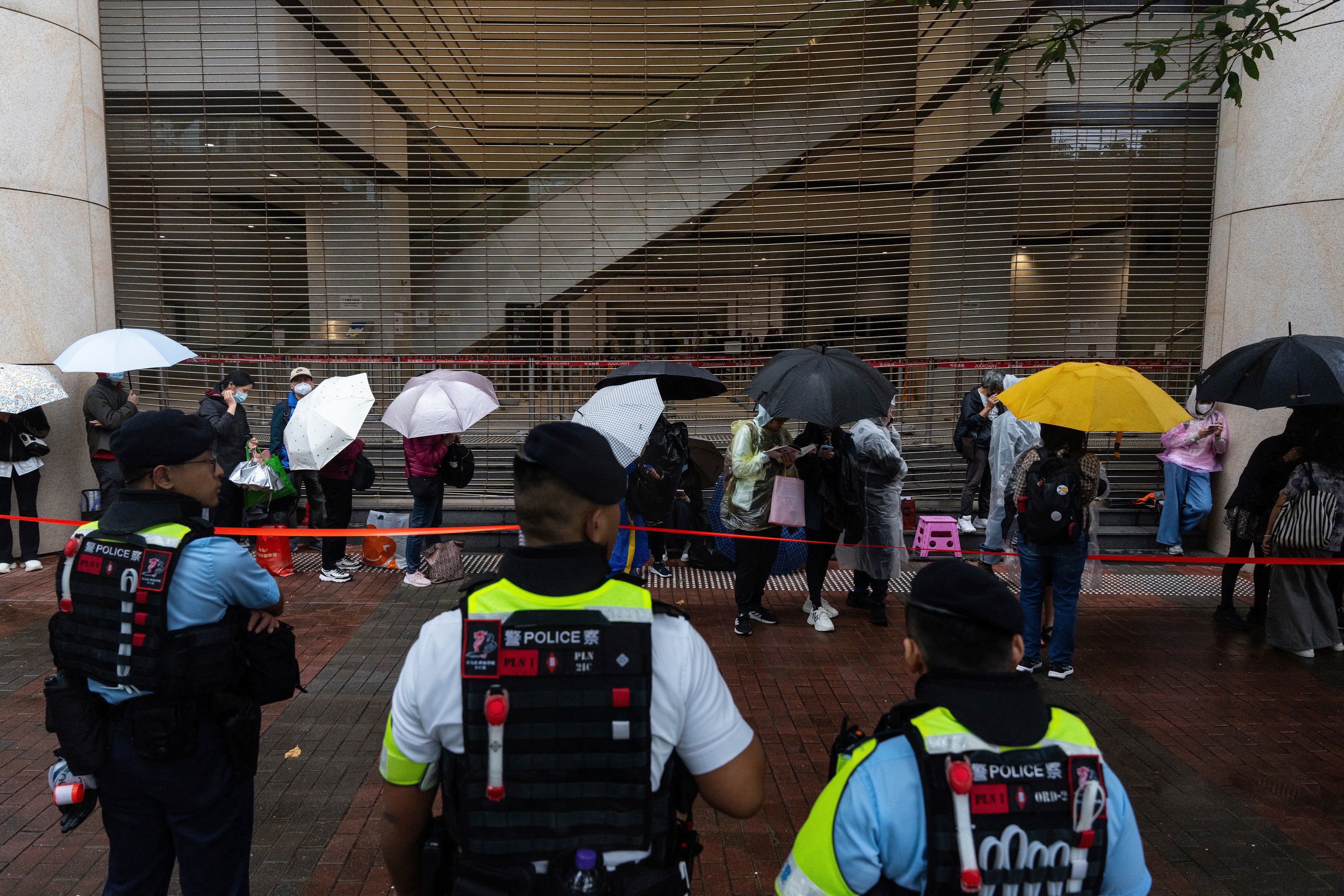
The trial has been condemned as politically motivated by Western nations.
Judges ruled that the plan to bring change through the primary election would have undermined government authority and created a constitutional crisis.
Mr Tai, who had written an article outlining “ten steps to mutual destruction”, was widely seen as the organiser behind the primary.
In their verdict, the judges wrote that Mr Tai essentially “advocated for a revolution” by publishing a series of articles over a period of months that traced his thinking, even though in his mitigation letter he said the steps were “never intended to be used as blueprint for any political action”.
Some defendants had claimed the scheme to secure a majority of seats in the legislature would never have materialised, but the judges rejected this reasoning, stating that “all the participants had put in every endeavor to make it a success”.
The US state department condemned the sentences and urged Hong Kong authorities to cease what it called “politically motivated prosecutions” and release all political prisoners.
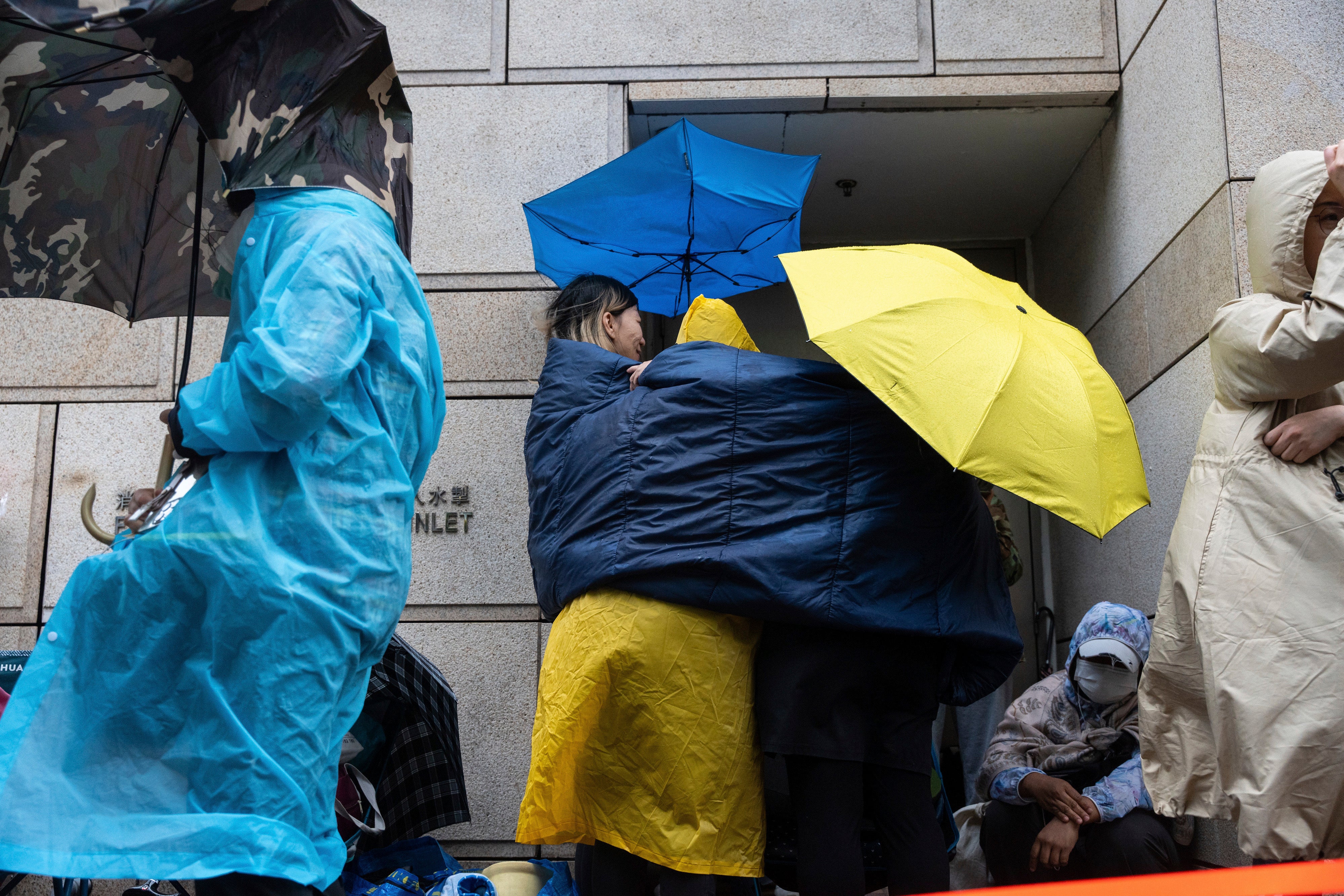
“The defendants were aggressively prosecuted and jailed for peacefully participating in normal political activity protected under Hong Kong’s Basic Law,” a state department spokesperson said in a statement.
Britain’s Indo-Pacific minister Catherine West said: “China’s imposition of the national security law (NSL) in Hong Kong has eroded the rights and freedoms of Hong Kongers.
“Today’s sentencing is a clear demonstration of the Hong Kong authorities’ use of the NSL to criminalise political dissent... The UK will always stand up for the people of Hong Kong, and all states should uphold their international obligations to protect these fundamental rights.” Shadow foreign secretary Dame Priti Patel said the sentences under the “draconian” national security law were appalling.
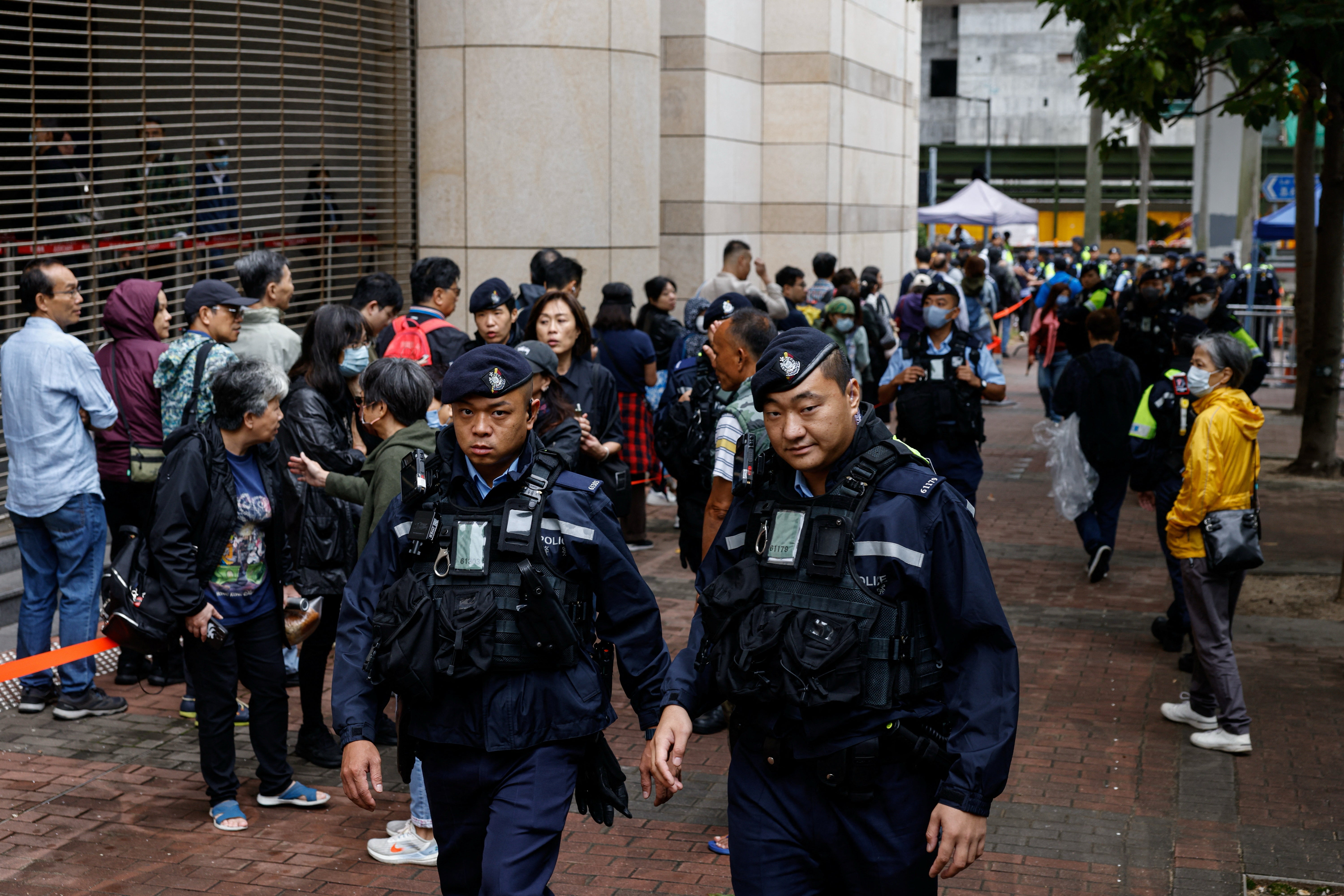
The timing of the sentencing is embarrassing for prime minister Sir Keir, who became the first UK leader since 2018 to meet China’s president Xi Jinping when they held talks in the margins of the G20 summit in Rio de Janeiro on Monday. But Downing Street defended the decision to meet the Chinese premier because it gave him the opportunity to raise his concerns face to face.
Chinese foreign ministry spokesman Lin Jian told reporters: “No one can engage in illegal activities in the name of democracy and attempt to escape legal punishment.”
Beijing “firmly supports” Hong Kong’s efforts to safeguard national security, he added.
Observers said the trial illustrated how authorities suppressed dissent following huge anti-government protests in 2019, alongside media crackdowns and reduced public choice in elections.
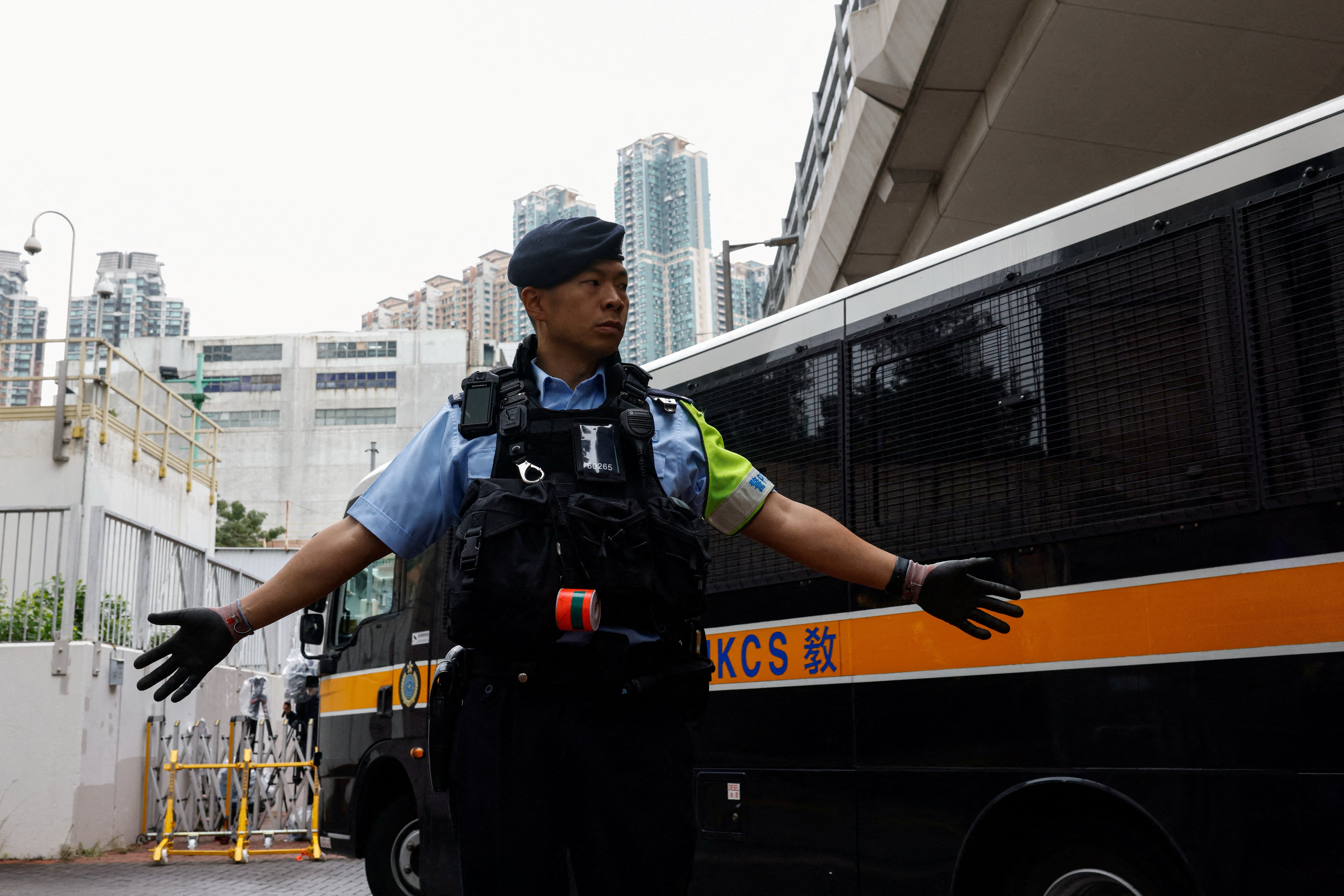
Some 200 supporters of the activists gathered to show solidarity outside the court despite rain and winds on Tuesday morning. Among them was “Grandpa Wong”, a centenarian who worried that he might not live to see the activists freed.
Wei Siu-lik, a friend of convicted activist Clarisse Yeung, arrived at 4am despite an injury. “I wanted them to know we’re still here for them,” she said.
Simon Cheng, a former UK Hong Kong consulate employee detained in 2019 in China before later being granted asylum in the UK, told The Independent: “[This] is a devastating reminder of the shrinking space for political dissent in Hong Kong.
“[These convictions are] a symbolic act of repression aimed at silencing any opposition,” he added. “This ruling send a worrying signal not only for Hong Kong but for the world”.
Additional reporting by Reuters and AP







